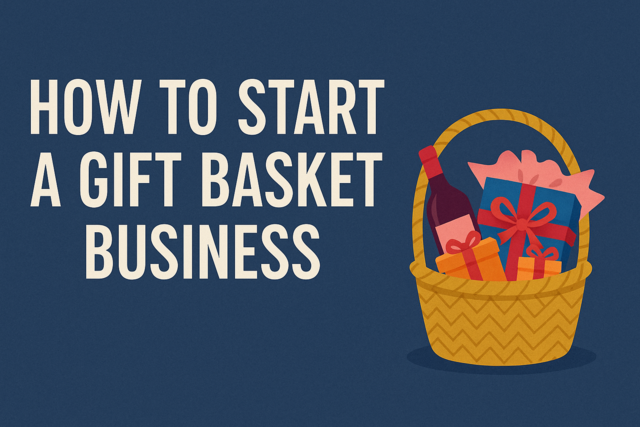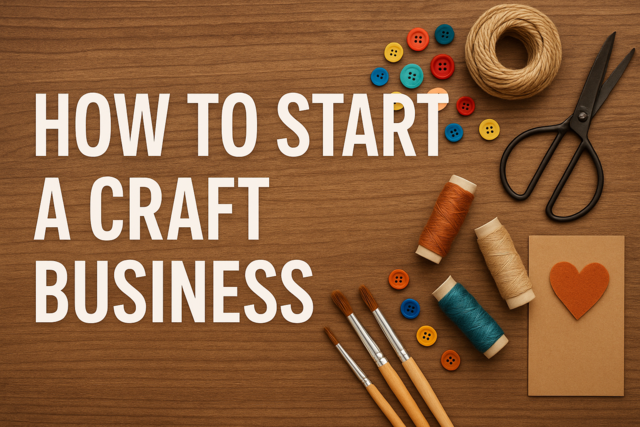You cannot have a gift basket service if you do not have product to place in your baskets. While you could go to your local store and buy items--which may be what you do when you first get started--it isn't a very effective method. In order to stock products for your baskets and equipment for your business, you will need to work with a supplier. As the name implies, suppliers are businesses that provide goods to other businesses. Understanding what options are available when it comes to suppliers, how to find them, how to change suppliers, and the relationship you can have with your supplier are all necessary for your gift basket business to thrive.
Types of Suppliers
Choosing a supplier for your gift basket business requires looking at not just the types of products you need, but also the type of supplier. Different suppliers will have access to different products. Knowing the difference between the types of suppliers and what each can provide will allow you to make it easier for you to place your order for supplies. Keep in mind that you may need to use multiple suppliers to get all of your supplies for your gift baskets.
-
Wholesalers--Also known by other names such as distributors and brokers, wholesalers purchase product directly from the manufacturers and then retail it to businesses. Within the supply chain, they are the intermediary. They will often fill smaller orders, which many manufacturers will refuse to fill as the cost to ship those orders is more than the price of the order.
Purchasing your product from a wholesaler will cost a little more than it would if you were buying from the producers directly. Their shipping costs tend to be much lower and have little impact on the costs for the items themselves. Many wholesalers will have few problems in obtaining an item, so the majority of your supply needs will most likely come through one.
-
Manufacturers--Suppliers who are categorized as manufacturers are the ones who are actually making the items you order. Working with this type of supplier cuts out the intermediary, allowing you to work more directly with the producers of your supplies. Typically, product purchased through manufacturers will come at a lower cost than it would from all other suppliers.
Working with manufacturer suppliers can be quite beneficial. As they are the ones who make your product, there is the chance that it will take less time for your orders to be filled. In the event of issues like recalls, you can potentially find out and address it faster than you would using a supplier that involves a more stops in the supply chain.
-
Independent craftspeople--Suppliers who have an exclusive distribution and production access to products designed by smaller groups are referred to as independent craftspeople. Many of these suppliers are small businesses themselves and their products are completely unique. They typically sell their product directly to the consumer or to retailers with some assistance, like trade shows or an agent.
Working with independent craftspeople, while it can guarantee a unique product, can be costly. They often are restricted by their own production process, so larger orders can take longer to complete and can cost more. As a result, independent craftspeople may have a cap on the size of an order you can get for one of their products.
-
Import services--Suppliers who are categorized as import services are wholesalers who operate internationally. Domestic wholesalers are often limited by finances, licensing, and familiarity with markets overseas. Items that you want for your gift baskets that are sourced in a foreign country may best be acquired through an import service, especially if you are unfamiliar with the home market of the product. For your gift basket business, this may be an option for some of your food and alcohol themed baskets, such as for wines.
If you choose to work with an import service supplier, you may want to do some additional background on them. The supplier will usually send representatives directly to the manufacturer in a foreign country in order to procure items. Making sure that the supplier is truly familiar with and has experience with the country your item(s) are coming from will not only ensure that you get your order, but also that it comes without any additional headaches.
Finding Suppliers
Once you have decided on the type of suppliers you will need to work with in order to get products for your gift baskets, you must then find them. Entering into the gift basket business will not cause suppliers to automatically come to you. You will need to shop around and research potential suppliers before choosing them. There is the possibility that a supplier will not agree to work with you, often due to your reputation or their policies rather than the nature of your business.
There are multiple places that you can search in order to find a supplier. Often, you will be able to learn about the supplier in the same place you found out about them to begin with. Before making a final decision, check their background and any reviews to see if they are known to have problems. Depending on where you are looking, you may be able to speak with current and past customers of a supplier who are in the gift basket industry.
-
Industry Contacts--Talking with others in the gift basket industry is often the fastest and safest way to find a reliable supplier. Those who have been in the industry for years will have experience with supplier and can tell who is reputable and who you should avoid. News also travels fast within industries; any new information about a supplier who works with gift basket services will be available through the industry before it is found anywhere else.
-
Trade Shows--Most suppliers attend trade shows for multiple industries. It is often their main source of advertisement for their services and they tend to bring their best with them to shows. Some suppliers will also offer deals and discounts at shows in an effort to attract new clients, which can be a huge benefit for you. Using trade shows to look for suppliers can allow you to see their product offerings in person and interact with their representatives face to face.
-
Online Searches--When it comes to specific products, searching online for wholesalers is often the easiest method of finding a supplier. 3 Searching for the product itself can turn up results for local suppliers, which can help you cut down on shipping costs. Results will also turn up for directories, reviews, and associations that you can find even more resources in.
Changing Suppliers
There may come a time where you have to make a change to your arrangement with your suppliers. This can include reducing the amount of suppliers, or ending your relationship with a supplier entirely. If you need to replace a supplier for one of the following reasons, you can use the same methods in the above section to find a new one.
-
Unreliable--Maybe your supplies have been arriving late, damaged, with missing components, or just plain wrong. When it happens once or twice, it can be understandable--things happen that are not always under you or your supplier's control. However, if it occurs frequently and consistently, you may need to find a new supplier. Having an unreliable supplier can create problems for you, as you need to be consistent with replenishing your inventory for your gift baskets. No items to put in your baskets means that you cannot fill orders.
-
Not Cost Competitive--Your supplier will have a better chance of retaining you as a customer if they cannot present a better offer than their competitors. 4 Not keeping up with competitor pricing of products may be evident that your supplier is not as in-touch with the industry as they should. Being overcharged for a product--especially if the price you are paying is well over its value--can be problematic and wasteful for you. If your supplier cannot give you an answer as to why their prices are not on par with their competition, then you may need to look elsewhere.
-
Too Many Extras--Some suppliers may ask for some additional requirements to fulfill your orders. It can be expected that smaller orders may require additions in order for your supplier to ship it to you, possibly due to things like cost. However, sudden increases in extras with your supplier may be a sign that something is going on with your supplier. Consistent requests for additions to your supply orders, with or without explanation, should be cause to question if your supplier is having problems.
-
Questionable Practices--When something starts to feel off, it usually means that it's time to make a change. Businesses may try to cut corners to save on costs, but it usually is for a short amount of time. They often have a domino effects, reaching all those involved. Sudden and unexplained changes to your supplier's business practices and behavior can lead to repercussions for your gift basket business and may be a sign that it's time to go elsewhere.
Relationship with Suppliers
To put it quite simply, if you have a poor relationship with your supplier then it will cause you problems. If you are constantly at odds with your supplier, it can affect the quality of the product they provide, when you receive your orders, and even costs. In order to maintain a positive relationship with your supplier, you should pay attention to how you conduct yourself in regards to the following:
-
Paying on time--A crucial part of your relationship with your supplier, making sure that your payments for your requested orders are one major way to keep your relationship with your supplier in good standing. There are penalties set by a business for late payments. Your supplier is still a business and will disclose the possible penalties for late payments when your business relationship first begins.
Lack of payment or insufficient payment for your suppliers may result in the severing of your business arrangements with your supplier. They may instill additional fees for late payments. A new supplier may reach out to your previous one to ask about any problems your business may bring them. Consistent problems with paying may prevent you from finding a new supplier and generate a negative reputation for your business within the industry.
-
Your behavior--Manners are an important trait to have in business. The way you conduct yourself professionally will impact how people, such as your supplier, view you. Rude or inappropriate behavior may be used as grounds for ending the relationship between you and your supplier. Just as failing to pay for your orders on time can generate a negative reputation for your business, behaving unprofessionally can do the same.
Think of it as such: you have two acquaintances. One conducts themselves in a manner that, no matter what they do, gets on your nerves. The other you tend to get along with quite well. You are more likely to view the first one as annoying and will do what you can to keep your interactions short and to a minimum, correct? If anything, you want to prevent yourself from alienating your suppliers in an effort to make sure that they will actually want to work with you.
-
Order requests--It is best to keep in mind that your supplier is human and has limitations as humans do. When you make requests for products, you should review them to see if they are reasonable before submitting them to your supplier. Take into consideration aspects of time, order size, and the item(s) being ordered. Can the items you need, in the amount you are asking for, be procured in the time frame that you want them to be? Is your request perfectly reasonable or is it absolutely outrageous?






























